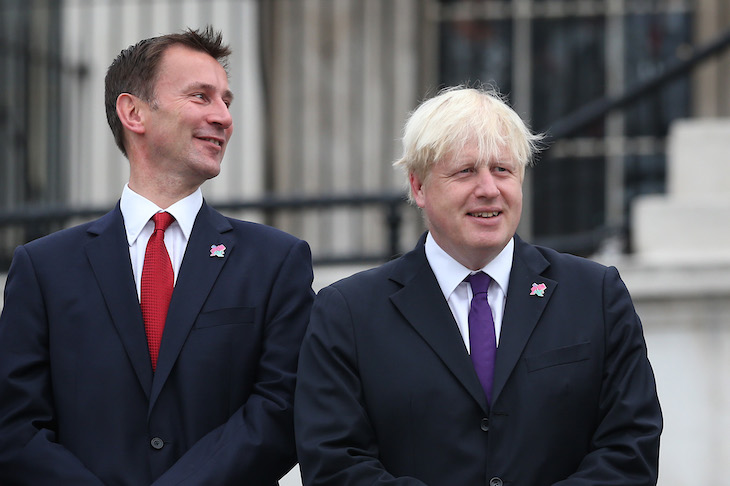Although there’s three weeks until the next Tory leader is announced, the contest is entering what is the most important week of the membership stage. On Saturday (6 July), postal ballots will begin to be sent to the Tory membership. The expectation is that the majority of members will vote quickly rather than wait to see how the contest plays out over the remaining weeks. It follows that each campaign sees this week as pivotal for getting its message out there.
In that vein, Jeremy Hunt hardened his Brexit position over the weekend. The Foreign Secretary used an appearance on the Andrew Marr Show to try and beef up his no-deal credentials. Although Hunt has previously said he would be willing to seek an Article 50 extension on the grounds that no deal could lead to an early election and that early election could lead to the Tories losing power, he now appears to be humming a slightly different tune. Hunt was keen to press that he would take the UK out with no deal, if by the beginning of October it was clear there was no prospect of a new deal: ‘At the beginning of October, if there is no prospect of a deal that can get through parliament, then I will leave at the end of October because that is our democratic promise to the British people.’ When pressed, Hunt said he would be willing – with a heavy heart – to look small business owners in the eye and say they should be prepared for the possibility of their company going bust to ensure a no-deal Brexit. On Monday, Hunt will use a speech to set out his plan for limiting the impact of no deal with a 10-point plan.
So, what’s behind the change in tone? While some of Hunt’s Remain-leaning supporters will struggle with the hardening of Brexit rhetoric, there’s a sense amongst Hunt allies that if they are to have any chance of competing with Johnson they need to come close to matching his Brexit rhetoric – and this is the week they need to do it. Although Hunt has made inroads in the campaign, he is yet to eat significantly into Johnson’s support base among the grassroots. However, Hunt’s problem is that he has changed his Brexit position enough times (he once backed a second referendum) that voters may well conclude it’s best to take his latest pledge with a pinch of salt.







Comments